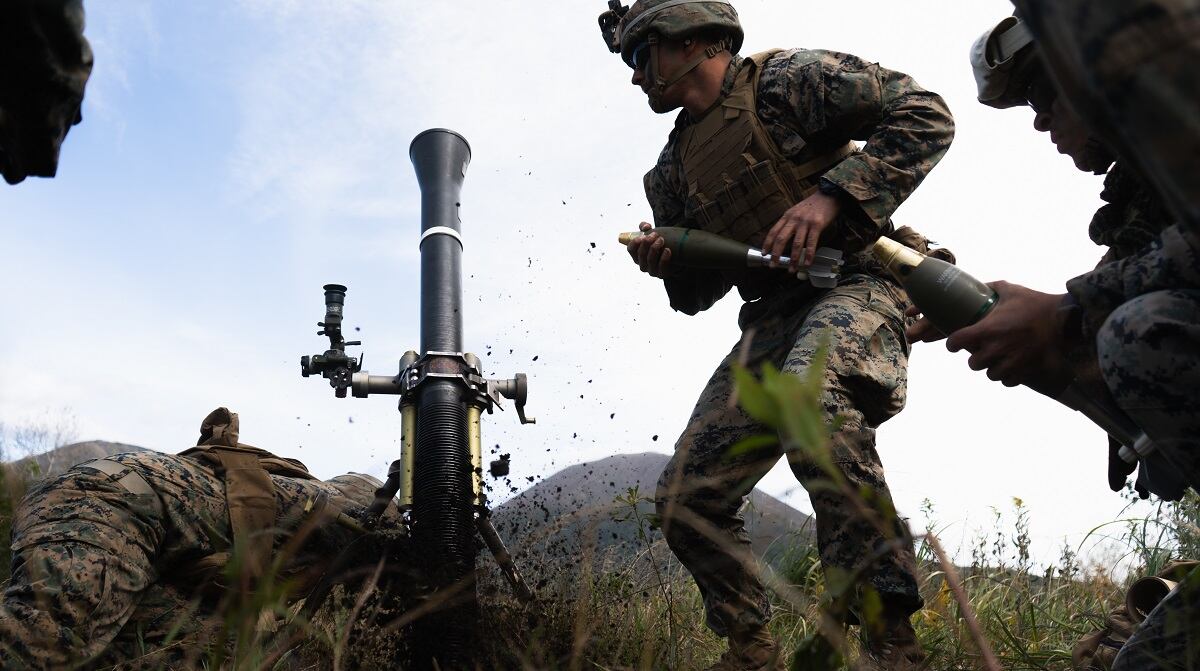Saving one person’s life usually is enough to establish someone as a hero.
Tech. Sgt. Megan Harper saved two lives in a single evening.
Harper is Air Force Times’ 2017 Airman of the Year due to her nearly 15 years of service excellence — from the battlefields of Iraq as a security forces airman, to her devotion to producing outstanding young airmen as a Military Training Instructor, to serving her community and saving lives at home.
Harper’s flight commander, Maj. Christopher Sweeney, said her passion and enthusiasm have made her respected by all as she trains and inspires her basic trainees. She leads from the front, with compassion, and doesn’t hesitate to do as much as she asks of her trainees.
"She’s an instructor who’s going to get out there and do it with you," Sweeney said. "If it’s time to get down and do some push-ups, she’s going to get down and do them with you. She’s going to lead you through them."
Harper, of Mesquite, Texas, is the child of two soldiers — her mother was in the medical field, and her father was a personnelist. She joined the Air Force in November 2002, after the Sept. 11 attacks because, she said, "It was my turn to serve."
"It was something that I was moved to do, and … be a part of that initiative to take that fight downrange as opposed to having it here on American soil," Harper said. "When I went to the recruiter, they asked me what I wanted to do, and I said, ‘I just want to kill terrorists.’ And they looked at me and said, ‘Oh, we have the job for you,’ and told me that security forces, if I wanted to deploy and have a weapon and get into the fight, that was going to be my best chance there."
The recruiters steered Harper right, she said. She deployed five times — first to Kirkuk, Iraq, in fall 2003 for six months, and later to Balad, Iraq; Kuwait twice; and Manas, Kyrgyzstan.
'Constant action, constant alert'
In Kirkuk, Harper and her fellow airmen provided airbase defense, securing the perimeter and the entries to facilities. It was intense and dangerous, Harper said. Her base was mortared several times, and she was involved in firefights.
"Definitely grew me up," Harper said. "It was almost constant action, and on constant alert. [But] I was actually more amped up to be part of the mission, as opposed to actually fearing anything."
In May 2004, Harper became the ninth woman in Air Force history to finish the elite security forces Phoenix Raven program, which specially trains airmen to provide security on-board aircraft while in flight — such as protecting the cockpit when foreign nationals are on board — and provide ground security when those airplanes land in dangerous areas. That training program was intensely physical, she said, teaching hand-to-hand combat and baton techniques, as well as undergoing air marshal training.
In 2014, Harper became an MTI and said it was the "absolute best decision I’ve ever made in my career."
Today, she said, she doesn’t see the same "call to service" that there was right after 9/11. So when a young man or woman decides to take the oath and serve, she’s honored to help them become airmen.
"It’s incredibly important that we teach and we train and we mentor and inspire our replacements, because that’s who we’re handing the security of our nation over to in the future," Harper said. "I’m incredibly humbled to be able to do that every day — to take someone from a civilian and teach them what it is to serve by that oath, and encompass and embody core values and commitment to service."
Harper has trained 1,125 new airmen and graduated 22 flights since she became an MTI at Joint Base San Antonio-Lackland in Texas.
Recently, Sweeney said, Harper was named a master military training instructor and received the blue rope showing she is among the top 10 percent of MTIs in the Air Force.
She also oversees 14 other instructors as an interim instruction supervisor — the only one in her unit who is not a master sergeant, although earlier this year she was selected for E-7. That promotion will take her past 20 years of service, though she wants to stay in uniform as long as possible.
"They’re going to have to force me out," Harper said.
Saving lives
On May 9, 2016, Harper’s quick thinking and dedication saved the lives of two people in separate incidents.
First, she performed the Heimlich maneuver on a trainee who began choking in the dining facility at Lackland. Another trainee motioned to the instructors' table that the choking trainee needed help, and Harper and another instructor responded. The trainee was holding his neck and turning blue, Harper said, so she told him to stand up and that she was going to perform the Heimlich maneuver. She dislodged the stuck food with three forceful thrusts, and the trainee was fine.
Less than three hours later, as she was leaving base, Harper saw a pedestrian who had been struck by a motor vehicle and stopped to help. The young woman’s breathing and heart rate were shallow, she said, so Harper sprung into action.
She went back to her car and grabbed gloves, dressing and a few bandages, and light-up discs to set up around the area and redirect traffic. She then started to perform first aid. She took off her ABU blouse, balled it up, and slid it under the victim’s head to keep her stable in case her spine or neck was injured.
The victim was bleeding profusely from the back of her head, which was also swelling severely, so Harper applied pressure to try to stop the bleeding. When Harper was silent, the victim would start to violently shake, so she kept talking to the victim to calm her down, reassure her that an ambulance was coming, and kept her from going into shock.
Harper followed the ambulance to the hospital and waited until about 2:30 in the morning in case they got in touch with the woman’s family, so she could tell them what happened. Harper knows the woman survived the night and was in critical condition, but because of privacy rules, she never found out what happened to her afterwards.
For her actions, Harper received the Air Force Achievement Medal — though Sweeney said that due to Harper’s humility, other airmen had to drag the details of the incidents out of her.
Harper is also heavily involved in volunteer activities that support veterans, such as the Bataan Death March memorial race and drives to collect hygiene supplies for female veterans in San Antonio and uniforms for junior ROTC cadets.
She also works with Team Rubicon, a veterans organization that responds to natural disasters such as tornadoes and flooding, and programs to help underprivileged youth like the Juvenile Justice Center, an alternative school for at-risk young people who have been kicked out of school.
Harper also heads up a mentorship program for young LGBT troops coming in to the military. And later in June, Harper is scheduled to brief a two-star general on implementing transgender policies at basic training.
"She is knowledgeable, she is approachable, credible, all of those professionalism pieces you look for, that’s her," Sweeney said. "She’s just hungry for it. She just really wants to be the best airman she could be."
Stephen Losey is the air warfare reporter for Defense News. He previously covered leadership and personnel issues at Air Force Times, and the Pentagon, special operations and air warfare at Military.com. He has traveled to the Middle East to cover U.S. Air Force operations.





